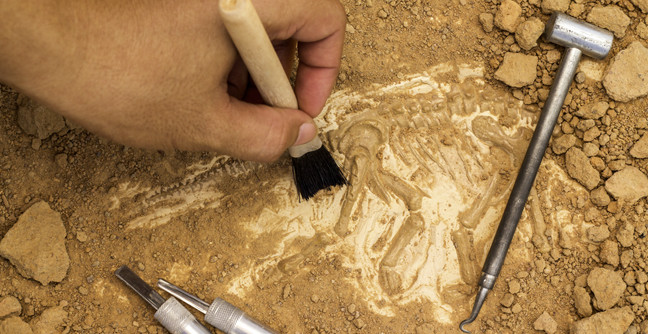What Grades Do I Need to Study Archaeology?

Archaeology is an incredibly broad subject that embraces both the humanities and the sciences. This means that a degree in Archaeology provides you with a very good skill set for a career in many professions, not just Archaeology.
Your Archaeology degree will provide you with skills in:
- Problem solving
- Data analysis
- Report writing
- Independent and logical thinking
- Group work
- Understanding statistics
- Public presentations
- Lateral thinking (being able to make connections between seemingly unrelated types of information)
All of these skills, and the other highly transferrable skills you’ll gain during your degree, will make you an attractive prospect to future employers.
Here’s more about studying for a degree in Archaeology and the grades and entry requirements you’ll need to meet for your application to be successful.
Why choose an Archaeology degree?
Of course the majority of students choose Archaeology as a degree because they are interested in the subject!
However, this doesn’t mean that you can only work in the archaeological field after graduating. Many students go on to follow successful careers in business, politics, science, the arts and a variety of other areas.
There are also many different approaches to studying Archaeology. For example, methodological approaches - archaeology as a science or an art – include areas such as marine archaeology and geo-archaeology.
You can also study archaeology specific to a period, civilisation or area – for example, medieval archaeology, Egyptology, or the archaeology of Scotland.
This makes it important to consider what sort of archaeology you are interested in before you apply to universities and pick courses that cater to your particular interests.
Do I need a degree to become an Archaeologist?
In previous years, it wasn’t essential to have a degree in Archaeology in order to become an Archaeologist.
However, most professional archaeologists now have a degree.
These days it is difficult to gain employment in archaeology now without at least a BA or BSc degree.
If you’re keen to gain more experience outside of your course then there are many archaeologists actively engaged in fieldwork as a voluntary activity through local societies, which anyone can join.
Where can I study Archaeology?
There are a number of universities that offer Archaeology degree courses with some being more specialised than others.
Research each course carefully to ensure that you’ll meet the entry requirements and that the syllabus matches your area of interest.
Universities that offer Archaeology degree courses include:
- Cambridge
- Durham
- Oxford
- Edinburgh
- Exeter
- York
- Robert Gordon
- Glasgow
- University College London
- Birmingham
What grades do I need to study Archaeology?
Although each university will have its own set of entry requirements you can usually expect that you’ll need at least two A Levels and GCSE at grade C or above in English and Maths.
Many universities don’t specify which A Level subjects you need to take as not all colleges offer Archaeology as an A Level subject.
However, students with A Levels in a related field may be preferred, particularly if you’re applying to a top university.
Useful A Levels include:
- History
- Classical Civilisations
- Sociology
- Maths
- Science (Chemistry or Biology would be most useful)
Be aware that if you’re choosing a science based Archaeology course, such as Bioarchaeology, the university may require you to have at least one A Level in science.
Are there any other entry requirements to study Archaeology at degree level?
Universities appreciate that students may not have had the opportunity to study Archaeology before, so don’t worry that that will put them off.
However, what universities are looking for most in candidates is an enthusiasm and good basic knowledge of the subject.
After all, if you want to study a subject at degree level, you should at least be motivated and interested enough to do some independent research before applying!
Any form of work experience of volunteering opportunities will be useful in your application and help your personal statement stand out against other candidates.
It’s also useful to stay up to date with current affairs in the archaeological field and regularly read archaeology related publications.
Career opportunities with an Archaeology degree
There are any number of career opportunities for Archaeology graduates and some are more obvious than others.
For example, many graduates go on to work in museums and archives or continue to study towards university lectureship, whilst others work for building companies to carry out excavation work before building starts.
You might also choose a less obvious career path and use your skills for a career in the civil service, journalism, teaching, law, or the financial sector.


